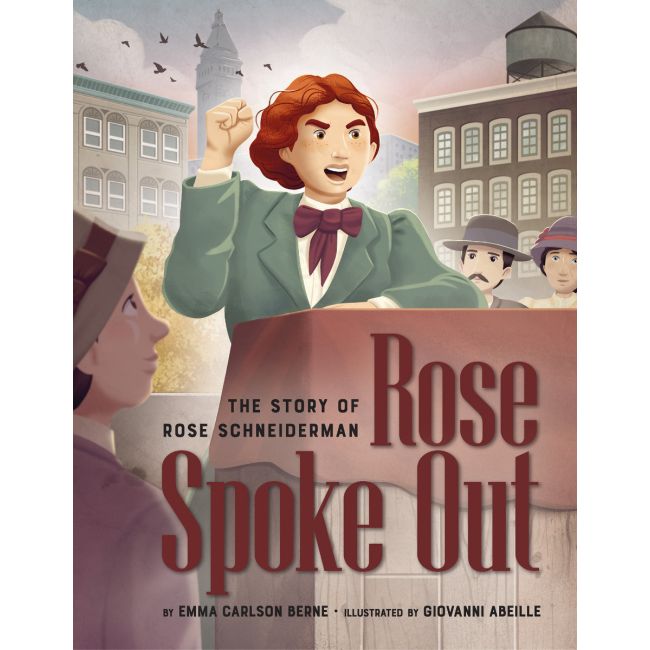Rose Spoke Out: The Story of Rose Schneiderman
An inspiring portrait of a woman committed to making a difference and whose influence is still felt to this day. --Kirkus Reviews
A young Jewish immigrant from Poland, Rose Schneiderman went to work in a cap factory in New York City when she was just thirteen years old.
She saw that women workers earned much less than men, that the factory was cold and dirty, without even clean water for the workers to drink. Rose spoke up for better conditions, and organized 20,000 women to walk out, leaving factories all over the city empty and still. Following the Triangle Shirtwaist Factory fire in 1911, Rose's speech at the Metropolitan Opera House galvanized support for better working conditions. The International Ladies Garment Workers Union was born.
Includes historical photos and bibliography, plus a note to families about tikkun olam, repairing the world, a core element of Jewish tradition.
One powerful voice can effect powerful change.
Polish Jewish immigrant Rose Schneiderman was 8 when she arrived in New York City with her parents in the late 19th century. Even as a child, she loved talking and arguing about ideas. At age 13, she left school to help support her family, finding employment in a hat factory. In early-20th-century New York, this meant buying her own sewing machine and enduring long hours in dirty, unsafe, and unfair working conditions. Having kept silent for fear of losing her much-needed job, Rose finally spoke up upon learning women earned less than men; organizing female co-workers to protest as a group was key, and some conditions improved, including wage increases. This victory of sorts eventually led to others. In 1909, Rose led a massive strike for factory workers’ rights. As time went on, more employees, employers, then journalists and politicians heeded this woman of small stature (only 4-foot-9) and big voice, and factory conditions continued to improve, particularly after her rousing address at New York’s Metropolitan Opera House. This is a quiet, respectful, stirring look at a courageous workers’ rights champion, written in straightforward, accessible prose. The simple illustrations are cast mostly in brown shades, reflecting the somberness of poverty and dire labor practices. (This book was reviewed digitally.)
An inspiring portrait of a woman committed to making a difference and whose influence is still felt to this day. (more about Rose Schneiderman, author's note) (Picture-book biography. 5-8) --Kirkus Reviews







